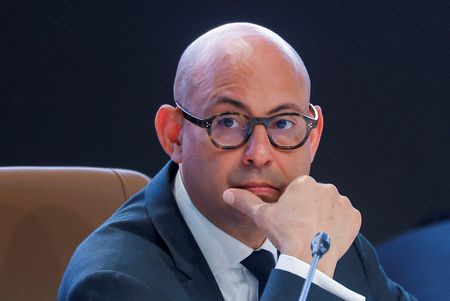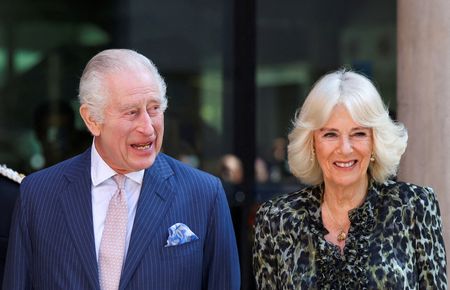By Lisandra Paraguassu and Valerie Volcovici
BRASILIA/WASHINGTON (Reuters) -Countries are staying committed to their national climate plans and looking to lead the clean energy transition, as the United States plans to exit the Paris climate agreement, the UN’s top climate official said in his first speech of the year on Thursday.
Simon Stiell, executive secretary of the UN Framework Convention on Climate Change, laid out priorities ahead of annual climate talks in November, and encouraged countries to prepare stronger national climate plans this year, even after U.S. President Donald Trump said he will remove the world’s second-biggest greenhouse gas emitter from the Paris agreement.
“A country may step back, but others are already stepping into their place to seize the opportunity, and to reap the massive rewards: stronger economic growth, more jobs, less pollution and far lower health costs, more secure and affordable energy,” Stiell said in a speech in Brazil’s capital Brasilia, alongside COP30 President Ambassador André Corrêa do Lago.
Asked about which countries are stepping up, Stiell says they will know at the end of the year, as the countries deliver a new round of NDCs.
“The call is for greater ambition, for these plans to be economy wide. These will be the most comprehensive climate plans ever developed, the third generation of NDCs. We’ll be able to give better commentary as we synthesize that toward the end of the year”, said the UN climate chief.
“But in terms of actions being taken, just looking at what is happening within the markets, region by region, country by country, it’s very clear, as I said, those that are pushing forward, regardless of whatever rhetoric there is about those who wish to step back”, he argued, citing, for example, what China, Brazil and India are doing on reducing emissions.
Stiell said in the 10 years since the Paris Agreement was adopted, the world has become more divided but the climate negotiation process has “managed to buck the trend.”
Some governments have faced political backlash to climate policies. Green candidates in Europe are losing support and the U.S. elected Trump, who campaigned against the Biden administration’s climate-centered agenda.
Even so, Stiell said the world has mobilized around $2 trillion in climate finance, money to support poorer countries’ efforts to reduce emissions and adapt to climate impacts, from “nearly nothing” over the last decade. He called on countries to increase the amount of climate finance they agreed to target at last year’s climate summit of $300 billion annually by 2035.
Stiell said the Paris Agreement provides all the mechanisms to drive countries to reduce emissions, but recognizes it “lacks enforceability”.
“And at the end of the day, it is for countries to nationally enforce and manage. And what we’re seeing there is that gap between what needs to be done and what is being done”, he said.
Stiell said also that he expects the vast majority of countries to submit new national climate plans under the Paris agreement this year. The UNFCCC has a February 10 deadline for submissions of those plans but many countries said they would submit them later in the year.
(Reporting by Valerie Volcovici; Editing by Rod Nickel and Daniel Wallis)









